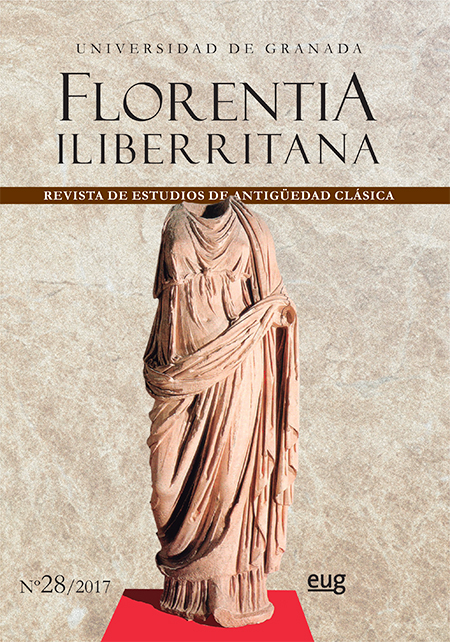Love in the time of the demagogue, or how the image of prostitution operates in the representation of Cleon in the Aristophanic comedy
Keywords:
Demagogue, Cleon, Prostitution, AristophanesAbstract
The term eros comprised a wide array of inclinations, including a political one (Ludwig, 2002:1). In the 5th Century the Athenian oratory consciously took possession of this semantic field (Connor, 1992; Ludwig, 2002; Wohl, 2002) and, according to Ludwig, the heart of the matter on our understanding of Ancient Greek texts depends on how sexual desire, romantic passion, and political passion (or ambition) are related among each other (2002:10).
Based on that, our aim is to analyse the mentions of Cynna, the prostitute, in the Aristophanic comedy from the perspective of how the êthos of the politician Cleon is constructed: while in Eq. 765, he explicitly mentions Cynna within the framework of his self-praise, the twin passages in Wasps and Peace (V.1032, P.755) belong to the parabáseis. Therefore, a detailed study of these passages will allow us, on the one hand, to make clear the counterpoint between the voices of Cleon and the poet –when invoking the name of this prostitute as part of the construction of Cleon’s êthos- and, on the other hand, examine how these allusions are related to sexual desire, romantic passion and/or political ambition.












